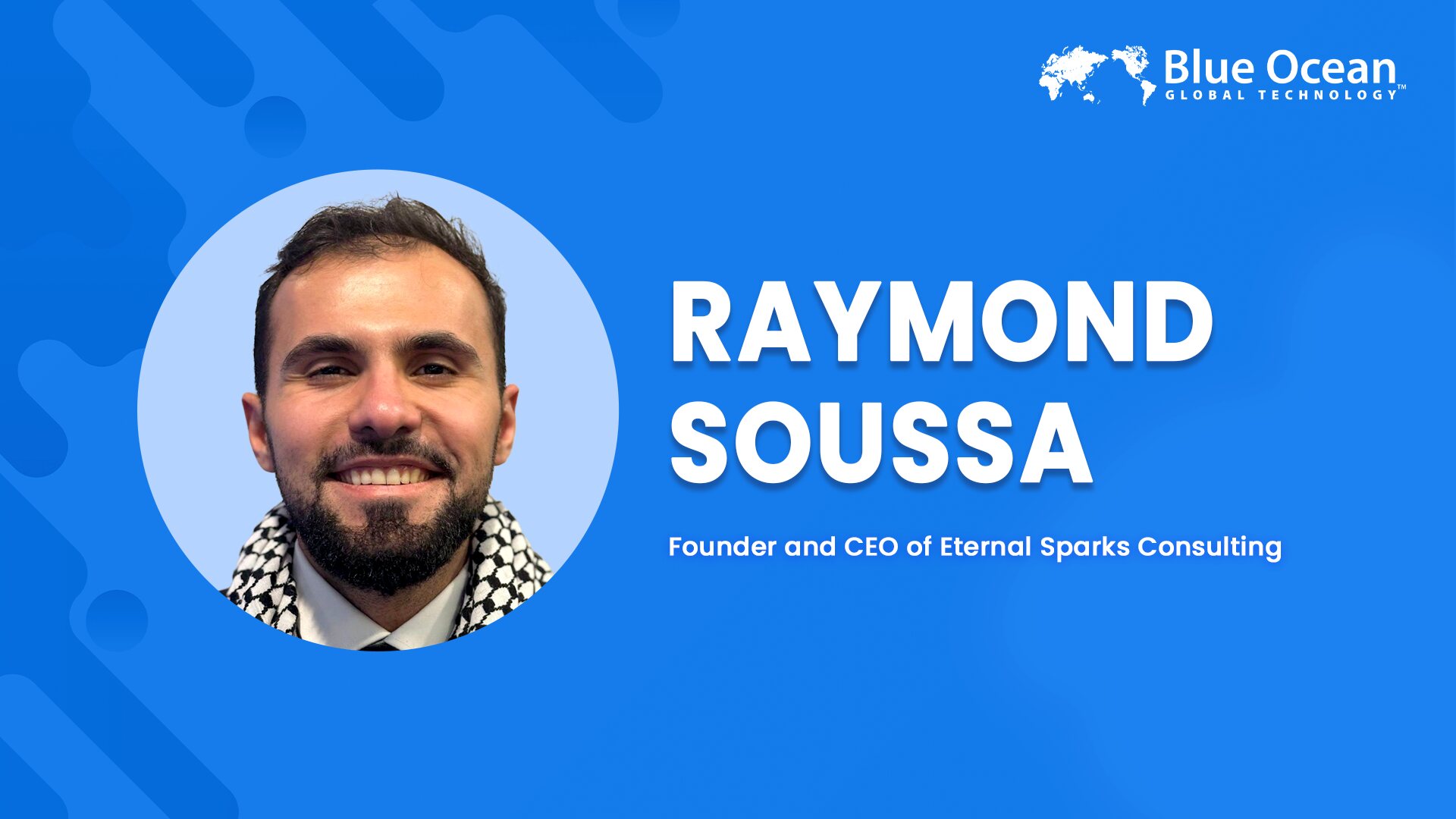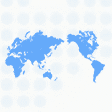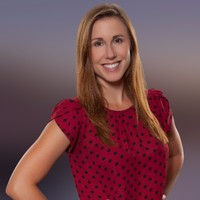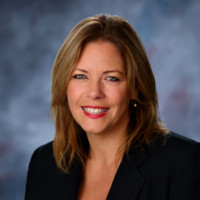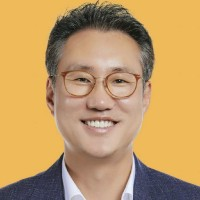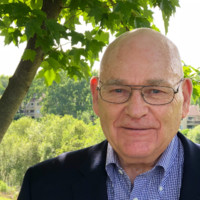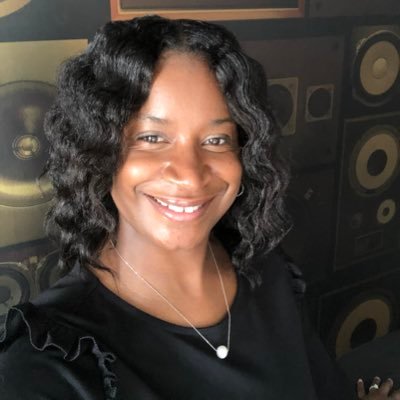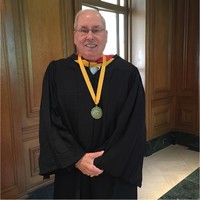About Raymond Soussa

Raymond Soussa is the Founder and CEO of Eternal Sparks Consulting (ESC) and board chair of the Muslim Philanthropy Network—organizations dedicated to mobilizing resources for social impact, philanthropy, and sustainable development. Under his leadership, ESC has raised over $30 million for non-profits, social enterprises, and community organizations across Canada and internationally.
With expertise spanning grant writing, major gifts, corporate sponsorship, and strategic resource mobilization, Raymond has supported more than 50+ organizations to unlock funding and build lasting capacity.
Raymond is currently pursuing a PhD at the University of Lisbon, where his research focuses on the mobilization of the North American Muslim diaspora for local and global development, exploring the intersection of philanthropy, Islamic finance, and diaspora engagement.
Fluent in English, French, Arabic, and Spanish, Raymond brings a multicultural lens to his work and regularly speaks at international conferences on fundraising, philanthropy, diaspora engagement, and innovative finance. His thought leadership emphasizes decolonized, community-centered approaches that empower grassroots organizations and diaspora communities to lead their own development.
Blue Ocean: Could you tell us about your professional journey—what led you from industrial engineering to dedicating yourself fully to the non-profit sector?
Raymond Soussa: I started off studying industrial engineering, but I didn’t feel passionate about it. My family faced some financial challenges while I was in university, and I had to get a part-time job. I applied everywhere in Montreal, and eventually got hired by the Canadian Red Cross as a face-to-face fundraiser.
At first, I thought I failed the interview. But I got the job, and my first week was incredibly tough. We had to convince strangers outside metro stations to sign up for monthly donations only—not even one-time gifts. Out of our group of 10, seven people were let go in the first two weeks. It was intense.
But as I started signing people up, I realized I actually enjoyed it. I was “selling” something I believed in. I could add my personal touch to the Red Cross’s story and connect with people. That was my first exposure to the sector, and I’ve been in love with it ever since.
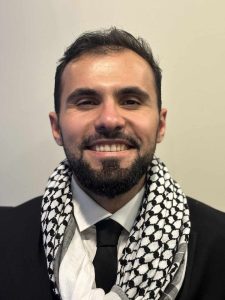
Blue Ocean: From fundraising for the Red Cross to leading your own organization that specializes in it—what was that journey like?
Raymond Soussa: After that initial fundraising experience, I got a job at a company called Ajah, now rebranded as Darrow. They focus on data infrastructure for the nonprofit sector. At the time, they sold prospect research tools to nonprofits, and my job was to sell the software. It wasn’t the best job in terms of fit, but I knew I had to be there to learn.
My colleagues were deeply knowledgeable about the sector, and I gained a lot of insight from them, especially about prospect research, fundraising, and how the nonprofit world operates. That job helped me build my fundraising knowledge and sales skills.
I moved to Lebanon when COVID hit and I decided it was time to work directly with nonprofits, rather than through a company that served them. My first direct contract was with the Environmental Health Association of Quebec, doing prospect research.
Then I worked with Freedom Tree, an organization based in Calgary that runs birthing clinics in Sierra Leone. With them, I landed my first major donation—$10,000 from Gibson Energy, a Canadian energy company. I’ll never forget that. It gave me a real sense of motivation and confidence.
I started getting more contracts with different NGOs and then got a job with the organization I feel most connected to: Islamic Family. As a convert to Islam, I had been looking for a Muslim NGO to work with. I even prayed for that opportunity. I’ve now been with Islamic Family for over four years. Around that same time, I had multiple contracts under my name and was feeling overwhelmed. Lebanon was also going through a terrible economic crisis. Many people were surviving on just $100 to $200 a month due to the currency collapse.
That’s when I spoke to my friend Adam, a pharmacist. I said, “Why don’t you leave your pharmacy job and help me with fundraising?” He agreed, and today, he’s the COO of Eternal Sparks. That’s how we started—in my living room in Lebanon, brainstorming names. We chose “Eternal Sparks” because we believe that God rewards every spark of good that you do eternally.
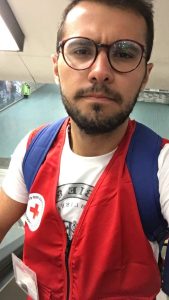
Blue Ocean: What does a typical day in your life look like?
Raymond Soussa: My days are a mix of meetings with prospects, internal team strategy sessions, and regular conversations with funders. I still close most of our sales and donations, so I manage the end of those cycles.
We’re a 22-person team, so I’m very involved. There are also a lot of internal strategy and training sessions. I’m mentoring staff, filming fundraising courses, and managing other ventures. Delegation has become essential as we scale, and I’m proud of how much our team has grown—some of our senior consultants started with no experience and are now fundraising experts.
In addition to that, I’m filming fundraising courses for clients and exploring new ventures. So it’s a mix of operations, strategy, fundraising, and training.
Blue Ocean: Which developments in the non-profit and social enterprise space most excite you when it comes to creating long-term sustainability for organizations?
Raymond Soussa: I’m most excited about decolonization and self-sustainability. My dream is for anyone in the Global South who has a good idea to be able to access funding and make it a reality, without feeling that they lack privilege or opportunity.
Technology, globalization, and the growth of new economies makes that more possible than ever. In the fundraising world, that translates into tools, systems, and training. I want to help communities develop open data systems, crowdfunding platforms, and even financial infrastructure such as digital banks. It also means teaching grant writing, prospect research, and diaspora mobilization.
There’s still a huge gap. Most people don’t know much about fundraising or philanthropy. And that’s not limited to nonprofits; even for-profits and social enterprises can benefit from this knowledge.
Right now, I’m building a tool called Karam, which means “generosity” in Arabic. It’s a prospect research platform for the Muslim sector, nonprofits, and small businesses alike. Other communities, like Black and Indigenous communities in Canada, have built similar platforms after years of exclusion. The Muslim community deserves that too.
It’s not about exclusivity—it’s about giving people options that align with their values. There was even a recent scandal about Canadian funders supporting genocide, which most people would never know about unless they had the information. So, having transparency in funding sources is crucial.
Blue Ocean: What do you believe has been the key to your success in building trust and ensuring organizations feel financially safe?
Raymond Soussa: As someone who’s religious, I attribute all success to God first. After that, it’s about hard work and honesty. I never promise guaranteed results because I can’t control funders. But I do promise a serious work ethic and a structured approach.
I share my track record, explain the number of grants I apply to monthly, and show how many funders I’ll reach out to. That builds confidence. Also, we only work with organizations that align with our values.
For example, we work with mobile markets in Calgary and Boston that sell food far below market rates. Food banks are necessary, but 75% of food-insecure people don’t use them because they don’t want to be seen as charity recipients. So offering dignity-based alternatives matters.

Blue Ocean: What is something unique that Eternal Sparks offers to its partners and communities that goes beyond traditional support?
Raymond Soussa: We have a very relationships-based approach to fundraising. We’re not just filling out grant applications—we’re connecting with funders, building partnerships, and truly embodying our clients’ missions. That’s how you fundraise effectively and keep funders long-term.
Fundraising is about people. It’s funny, because although the main deliverable is money, it’s still a people business. It’s easy to get lost in the numbers, but we constantly have to reset our intentions.
Also, our global team is unique. Half are based in Lebanon, and the rest are spread around the world. Despite that, we have deep expertise in Canadian and U.S. fundraising, which is rare and powerful.
Blue Ocean: In your experience, what qualities separate those who truly make an impact in the non-profit world from those who struggle?
Raymond Soussa: First of all, nothing beats the mission of the organization. The cause itself is absolutely critical. You need to be operating in a field that’s genuinely impactful and that people want to support—because you simply can’t grow a nonprofit alone. That’s easily 50% of the equation.
But the other 50% comes down to the founder—their willingness to elaborate, their patience, and the day-to-day actions they take to actually scale the organization.
I’ve met with countless people who are still in the idea stage of their nonprofit, yet they’re already talking about raising millions. And I have to say: slow down. Honestly, it’s much harder to raise your first $10,000 than it is to raise your next million. People don’t always realize that. They start building a grand narrative before doing the work required to back it up.
You need to put in the daily effort. You need to understand how long this takes. My advice to anyone starting a nonprofit is to give yourself one to two years to get going, unless you already have an existing network. But if you are starting from scratch, it just means you need a plan. Execute it consistently and be patient.
In many cases, you’ll also need to self-fund initially—or lean on your friends and family. People often underestimate this. But the truth is, every nonprofit starts with a personal network before growing outward.
So the people who succeed tend to be those who combine vision and patience with consistent action. They keep building relationships. They keep producing impact. Nonprofits don’t grow without impact—you can’t skip that step.
One thing that really makes a difference is the capacity to be innovative. Even in the social sector, where the need is massive and ever-growing, there’s still a lot of overlap. Many organizations are trying to solve the same problems. There are countless charities working in areas like mental health and food insecurity, and yet the issues persist.
Blue Ocean: How do you approach mentoring or guiding others who want to dedicate their careers to purpose-driven work?
Raymond Soussa: I focus on two main things. First, training my current staff. We recently finalized an official training plan, which includes a detailed guide on what people need to learn to succeed at Eternal Sparks.
Second, we offer courses and workshops. I teach a course on resource mobilization at the International Training Centre of the International Labour Organization in Italy, which is connected to the UN. I’ve also delivered courses for foundations and nonprofit networks, and we’re building our own internal courses to reach even more people.
A big part of what we do is knowledge dissemination. Teaching others how to fundraise effectively is critical. But also, I love talking about social issues. The reason I entered this sector was to contribute to real-world impact, not just raise money.
We’re also starting a podcast called Speak Your Spark, where we invite leaders in the nonprofit and social enterprise sectors to share why they do what they do. The idea is to keep learning from each other and sharing insights more widely.
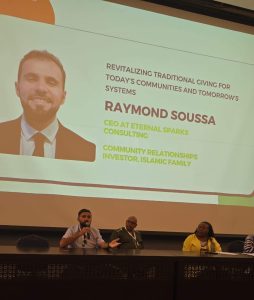
Blue Ocean: What advice would you give to your younger self if you were starting your career in this multifaceted industry?
Raymond Soussa: “Keep going.” In the early days of my career, I had moments when I wanted to give up. I would reassure myself: you’re on the right path. Keep your faith, keep your head down, and keep learning.
To be fair to myself, I didn’t quit—which I’m proud of. But I struggled. So the advice would be to trust that this journey is worth it and that the work matters. Even today, with new ventures and ideas I’m working on, I have to remind myself of that same advice.
Blue Ocean: What is something you are most grateful for, either professionally or personally?
Raymond Soussa: Personally, I’m most grateful for Islam. I felt very lost, and Islam gave me everything. Connecting to a higher power and a sense of purpose personally is everything.
Professionally, I’m grateful for the people I get to work with. Some of my clients have become my best friends. And I work every day with my actual best friend, who is now our COO. That’s a huge blessing.
I’m also grateful for the nature of the work. I meet a lot of people who tell me how fulfilling my job must be—and it truly is. So I’m grateful to work in a field where you’re not only doing this for money but you’re actually trying to help people.
Blue Ocean: What’s one lesson in life that changed your perspective?
Raymond Soussa: There’s a verse in the Quran that says, “Verily, in the remembrance of Allah do hearts find peace.” That verse has stuck with me. No matter what I do, no matter how much I accomplish, or how much success I may achieve, it’s only through remembering the divine that I feel truly fulfilled.
That realization consistently puts my whole life into perspective. It reminds me that success and blessings only come from God. I still have to show up and do the work, but the results come from him.
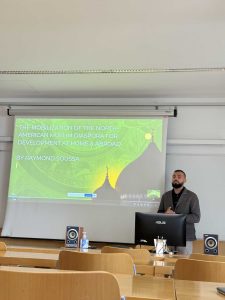
Blue Ocean: What hobbies or interests help you maintain a balanced lifestyle outside of work?
Raymond Soussa: I play basketball and I’ve really been getting into it more seriously recently. It means a lot because I used to be obese as a kid, and sports weren’t really a part of my life. Basketball is also humbling. One day, you feel like the best player on the court, and the next day, you feel invisible. I love that about it. It helps me stay grounded. Even when I play with people much better than me, I still enjoy it. Sometimes I barely shoot at all, but I keep learning.
Besides that, I also go to the gym, do volunteering, and read from time to time.
Conclusion
From his early days fundraising outside metro stations to building a global team and launching initiatives such as Karam, Raymond Soussa has stayed rooted in the same core values: honesty, faith, and a deep commitment to people. Whether he’s mentoring his staff or creating opportunities for the Global South, his focus remains on using fundraising as a tool for real and lasting impact. His story is a reminder that purpose-driven work takes patience, consistency, and a willingness to start small and keep going.
Do you have a personal or professional story that can inspire other people into becoming the best version of themselves?
You are welcome to share your journey with our audience.

